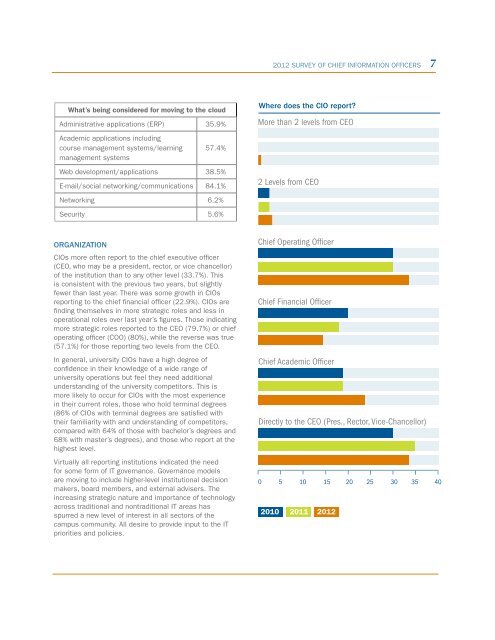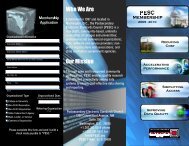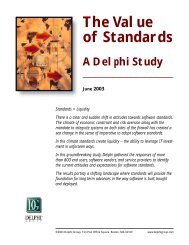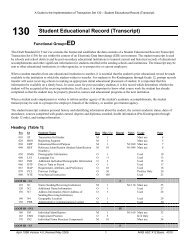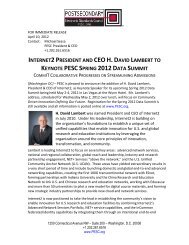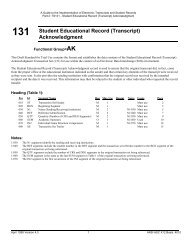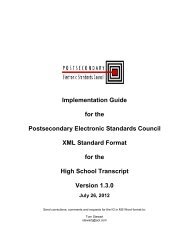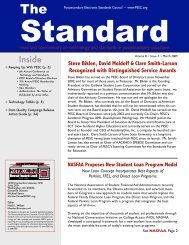February 2013 - PESC
February 2013 - PESC
February 2013 - PESC
Create successful ePaper yourself
Turn your PDF publications into a flip-book with our unique Google optimized e-Paper software.
2012 Survey of Chief Information Officers<br />
7<br />
What’s being considered for moving to the cloud<br />
Administrative applications (ERP) 35.9%<br />
Academic applications including<br />
course management systems/learning<br />
management systems<br />
57.4%<br />
Web development/applications 38.5%<br />
E-mail/social networking/communications 84.1%<br />
Networking 6.2%<br />
Security 5.6%<br />
Where does the CIO report?<br />
More than 2 levels from CEO<br />
2 Levels from CEO<br />
Organization<br />
CIOs more often report to the chief executive officer<br />
(CEO, who may be a president, rector, or vice chancellor)<br />
of the institution than to any other level (33.7%). This<br />
is consistent with the previous two years, but slightly<br />
fewer than last year. There was some growth in CIOs<br />
reporting to the chief financial officer (22.9%). CIOs are<br />
finding themselves in more strategic roles and less in<br />
operational roles over last year’s figures. Those indicating<br />
more strategic roles reported to the CEO (79.7%) or chief<br />
operating officer (COO) (80%), while the reverse was true<br />
(57.1%) for those reporting two levels from the CEO.<br />
In general, university CIOs have a high degree of<br />
confidence in their knowledge of a wide range of<br />
university operations but feel they need additional<br />
understanding of the university competitors. This is<br />
more likely to occur for CIOs with the most experience<br />
in their current roles, those who hold terminal degrees<br />
(86% of CIOs with terminal degrees are satisfied with<br />
their familiarity with and understanding of competitors,<br />
compared with 64% of those with bachelor’s degrees and<br />
68% with master’s degrees), and those who report at the<br />
highest level.<br />
Virtually all reporting institutions indicated the need<br />
for some form of IT governance. Governance models<br />
are moving to include higher-level institutional decision<br />
makers, board members, and external advisers. The<br />
increasing strategic nature and importance of technology<br />
across traditional and nontraditional IT areas has<br />
spurred a new level of interest in all sectors of the<br />
campus community. All desire to provide input to the IT<br />
priorities and policies.<br />
Chief Operating Officer<br />
Chief Financial Officer<br />
Chief Academic Officer<br />
Directly to the CEO (Pres., Rector, Vice-Chancellor)<br />
0 5 10 15 20 25 30 35 40<br />
2010 2011 2012


